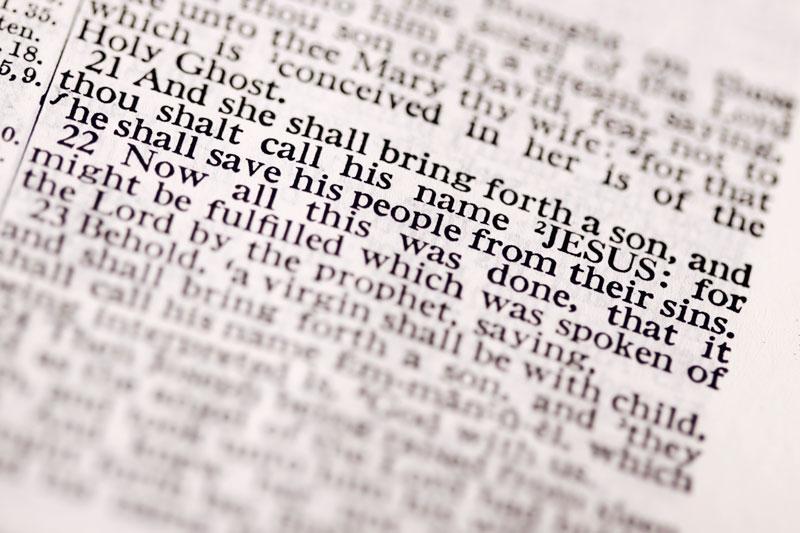 Introduction:
Introduction:
The other morning I was meditating on spiritual resources which enable the Christian to get through any difficult time. As all of us are experiencing the ripple effects of COVID-19, I'm sure we wonder how we will fare? Furthermore, as we emerge out from underneath this time, and face a whole new way of living life amidst what are bound to be sweeping changes, how can the Christian effectively navigate through such choppy waters? Below I offer five truths that God provides for spiritual and emotional strength through this time and, really any situation we may face in the future.
1. Sovereignty of God.
What is God's sovereignty? Divine Sovereignty is that perfection in which God has the unlimited right to be God over all He has created. The sovereignty of God is crisply expressed by Dutch theologian Abraham Kuyper, where he said in effect that there is not one square inch of all creation where Jesus does not say: "mine". King David wrote in Psalm 103:19 perhaps the clearest words about God's sovereignty anywhere in God's Word, the Bible -
"The Lord has established His throne in the heavens, And His sovereignty rules over all. 20 Bless the Lord, you His angels, Mighty in strength, who perform His word, Obeying the voice of His word! 21 Bless the Lord, all you His hosts, you who serve Him, doing His will. 22 Bless the Lord, all you works of His, in all places of His dominion;
Bless the Lord, O my soul!"
Some additional passages which affirm God's ultimate right of dominion over the events of our world are Genesis 50:20; Acts 2:23-24; 14:17; Romans 8:28 and Romans 11:36.
Why is Sovereignty such a strengthening truth? To know that God is on the throne and that there is nothing random or meaningless means there is a purpose to everything - even when we cannot see it in the short-term. I heard author Charles Swindoll once note in a sermon something to this effect:
"Although I may not be able to comprehend all that is in God's Sovereignty, yet because of His Sovereignty I find great comfort and peace".
God's exercise of His Sovereignty in our world is called His "Providence", meaning, He directs the course of all things, and uses both good and evil to accomplish His greatest good. Providence, simply put, is where God's "right-to-reign" becomes "the exercise of His reign in the maintaining of our world". Although God is not the author of evil and suffering, His plan included it. He works His will through the secondary agency of human choices and the secondary instrumentality of the laws of nature, history and events. The Baptist Faith and Message 2000 expresses this point of God's providence:
"God as Father reigns with providential care over His universe, His creatures, and the flow of the stream of human history according to the purposes of His grace. He is all powerful, all knowing, all loving, and all wise."
God chose to create a world that included, in His plans, the Fall of man and the Crucifixion. The inclusion of the crucifixion of Jesus and permission of the Fall of man points us to God's morally sufficient grounds for using both to achieve His most-wise ends. The 1689 Baptist Confession of Faith in Modern English notes about Divine Providence in matters such as COVID-19 (notice the underlined words) -
"All things come to pass unchangeably and certainly in relation to the foreknowledge and decree of God, who is the first cause. Thus, nothing happens to anyone by chance or outside of God’s providence. Yet by the same providence God arranges all things to occur according to the nature of second causes, either necessarily, freely, or in response to other causes."
2. The Savior - Jesus Christ
When Jesus came into our world to live, suffer, die and raise from the dead, He came as the Savior of the world and His church (Acts 20:28; 1 Timothy 2:2; 4:10; 2 Peter 3:9). We read in Acts 4:27-28 a prayer the early Christians expressed that had a strong view of God's Sovereignty and focus on the Savior - Jesus Christ:
"For truly in this city there were gathered together against Your holy servant Jesus, whom You anointed, both Herod and Pontius Pilate, along with the Gentiles and the peoples of Israel, 28 to do whatever Your hand and Your purpose predestined to occur. 29 And now, Lord, take note of their threats, and grant that Your bond-servants may speak Your word with all confidence."
As the early church was undergoing increased pressure, they found spiritual and emotional resources in the mission and majesty of Jesus Christ. The writer in Hebrews 13:8 reminds us of about Jesus as unchanging, with respect to His Divine nature, whenever we consider our rapidly changing world:
"Jesus Christ is the same yesterday, today and forever".
One other quote from the inspired Book of Hebrews about the Savior, Jesus Christ, captures His empathy which He experienced as truly man for us in Hebrews 4:15-16 -
For we do not have a high priest who is unable to sympathize with our weaknesses, but one who in every respect has been tempted as we are, yet without sin. 16 Let us then with confidence draw near to the throne of grace, that we may receive mercy and find grace to help in time of need. - ESV
I love that particular text of scripture, since there is an invitation to come to the Lord Jesus Christ in prayer whenever we're in need of help. The last line of the Baptist Faith and Message 2000 article on "God the Son" reminds us:
"He now dwells in all believers as the living and ever present Lord."
Other New Testament passages such as Hebrews 12:1-3 direct the Christian to focus on Jesus when facing hardship (also consider 1 Peter 2:21-22; 1 John 2:6).
3. The Scriptures.
In addition to God's Sovereignty and the Savior, the third life-sustaining truth for Christians to remember when facing situations such as COVID-19 or other times is the Word of God - i.e. "the Scriptures". The term "scripture" derives from the Latin "scriptura" and means "that which is written". The Bible is God's Divinely written, inspired, inerrant words as originally given to the prophets and apostles. Psalm 119:105 reminds us in these dark times:
"Your word is a lamp to my feet and a light to my path."
Romans 15:4 gives us this life-practical reminder of why we need the Bible in times such as these:
"For whatever was written in earlier times was written for our instruction, so that through perseverance and the encouragement of the Scriptures we might have hope."
Readers can also turn to the following Biblical passages about the necessity and sufficiency of scripture in difficult times (Psalm 19:7-14; 2 Timothy 3:15-17; 2 Peter 1:19-21).
4. The Spirit of God.
For the Christian, having God's presence directly active in their life ought to give great comfort in a time such as this, which is why Jesus promised the sending of the Holy Spirit upon His ascension into Heaven (see John 14:16-17; 14:26; 15:26-27; 16:7-11).
The Holy Spirit is the third Person of the Trinity, meaning, He brings to us the direct presence and power of God as God. Put another way, I sometimes refer to the Holy Spirit as the "Ambassador of the Trinity", since it is He Who makes available to the Christian access to the Lord Jesus Christ and the Heavenly Father (see Romans 8:14-16; Galatians 4:6; Colossians 1:27; Hebrews 4:15-16). The presence of the Holy Spirit in the Christian means that God is literally with every believer, and that there is no chance of having to face any crisis alone apart from God (see 1 Corinthians 3:16; 6:19-20).
5. Certainty of God's promises.
I've read over the years that various authors estimate some 8,000 promises from God to the Christian. What promises can we turn to when facing difficult times? Let me mention a few examples. Whenever you are trying to discern God's will for future employment, your family or your current situation, Proverbs 3:5-6 gives this counsel:
Trust in the Lord with all your heart
And do not lean on your own understanding. 6 In all your ways acknowledge Him, And He will make your paths straight.
What about knowing how to pray whenever you feel overwhelmed? How can you cope with overwhelming burdens such as bills and health? The Apostle Paul gives us this prescriptive promise in Philippians 4:6-7 -
Be anxious for nothing, but in everything by prayer and supplication with thanksgiving let your requests be made known to God. 7 And the peace of God, which surpasses all comprehension, will guard your hearts and your minds in Christ Jesus.
Then of course the impulse we all feel to get out of our homes and go "do something". For others, the current "holding-pattern" is nerve-racking, especially whenever one feels the urgency to get back to work or somehow try to transcend a situation in which they have no control. The promise we find in Isaiah 40:30-31 is timely -
"Even youths shall faint and be weary,
and young men shall fall exhausted;
31 but they who wait for the Lord shall renew their strength; they shall mount up with wings like eagles; they shall run and not be weary; they shall walk and not faint."
Closing thoughts:
We've considered five truths to get us through any situation: God's Sovereignty; the Savior - Jesus Christ; The Scriptures; The Spirit of God and the certainty of God's promises. I've found in over thirty years of Christian living that these five spiritual resources enable endurance through any and every situation. May the Lord strengthen you dear reader as you look to Him.
 Introduction:
Introduction:
In the last post we began to look at God's emotional life here: http://www.growingchristianresources.com/2020/04/thats-good-question-answering-recent.html. Recently, I had received a question about this topic in a Sunday night live Q&A service (in which we live streamed and received questions from viewers). I began to deal with how God's emotional-life differs from our emotional life. In this post, I continue on with the response I gave to this question, focusing on the seemingly perplexing issue of how an unchanging God is described as "changing His mind" or emotions. For those interested in watching the video segment to which this question is related, you can click on the link here to our church's You Tube channel that features the "Q&A service" from April 5, 2020 and forward to time segment 30:15-43:30 in which the question is addressed. https://www.youtube.com/watch?v=mbH84ZEGlR0&t=2607s
So what does the Bible mean when it says "God changed His mind", even though it elsewhere describes God as unchanging?
Answer:
1. Scripture does present God as unchanging in terms of His being while seemingly "changing His mind".
"Scripture says that on several occasions (for instance in the book of Jonah), that Jonah is talking to God in chapter three of His prophecy. Jonah said something to the effect: "I knew that you were a God who would change your mind". What had happened, Jonah had been told by God to proclaim throughout the city of Nineveh in three days God was going to judge them. Then, the King of Nineveh decreed a time of repentance where everyone was to dress in sackcloth and sit on ashes (a customary ancient form of mourning) and cry out to God for repentance. It says in the book of Jonah that "God changed his mind". So, some people have asked: "well, how can that be the case?" We read, for instance, in Numbers 23:19
"God is not a man that he should change his mind nor son of man that he should repent".
Yet, there in the book of Jonah, we see God changing his mind. Although God is by nature unchanging (what theologians call "immutable"), we see instances in scripture where we see him described as changing his mind that is referring to God from the standpoint of the creatures. What is going on then?
2. God, in Scripture, uses two different methods of expressing His nature and identity.
Scripture talks of God in two ways. There are those verses that speaks of God as He is in and of Himself - namely, He's unchanging. Then, there are those verses in which God adapts the revelation of Himself in forms of figurative language to bridge understanding to His people (older writers liken this to a parent speaking baby-talk to their child).
 As to the first sort of way scripture refers to God, we turn to James 1:17, which says -
As to the first sort of way scripture refers to God, we turn to James 1:17, which says -
"every good and perfect gift comes down from the Father of heavenly lights with whom there is no variation nor shifting of shadow."
So, with respect to God from God's perspective, there is no change within Him. His emotions are constant. They are "always-on", so-to-speak. God's emotional life is unvarying.
 To illustrate, whenever I was a child, my mom or dad would take me to do errands or go on a trip. They would tell me at the beginning of the trip - "we're going to the store" or "we're going to Grandma's house". As to their plan and point of view, there was nothing different to alter that plan. They told me what was happening. They were the same mom and dad to me. As a principle of perspective and truth - my mom and dad kept the same unvarying plan and course.
But with respect to our finite perspective, as we experience and interact with God from our point of view, it seems as if God does change his mind. Romans 2:4 says this:
To illustrate, whenever I was a child, my mom or dad would take me to do errands or go on a trip. They would tell me at the beginning of the trip - "we're going to the store" or "we're going to Grandma's house". As to their plan and point of view, there was nothing different to alter that plan. They told me what was happening. They were the same mom and dad to me. As a principle of perspective and truth - my mom and dad kept the same unvarying plan and course.
But with respect to our finite perspective, as we experience and interact with God from our point of view, it seems as if God does change his mind. Romans 2:4 says this:
"do you think lightly of the riches of his kindness and tolerance and patience, knowing that the kindness of God leads you to repentance".
So, we understand that it is God's intention to change people and to change their lives. So whenever we read in scripture those places where God is described as "changing his mind", that is, figurative language used in scripture to ascribe changeable human-like emotions to God (called "anthropopathism", or "human-like emotions"). God does this in revealing Himself by adapting the revelation of Himself to people so that they can relate to Him.
 If we go back to my illustration of my parents and myself as a child on a trip, my parents could make several stops along the way to our intended destination. In my child-like understanding, I wondered why my parents "changed their minds" about our trip. Sometimes they would explain to me in words I could grasp why we were making this stop or that stop (and sometimes they would say "trust me").
If we go back to my illustration of my parents and myself as a child on a trip, my parents could make several stops along the way to our intended destination. In my child-like understanding, I wondered why my parents "changed their minds" about our trip. Sometimes they would explain to me in words I could grasp why we were making this stop or that stop (and sometimes they would say "trust me").
As a child, it was hard for me to grasp they're overall intentions, yet, they had never ultimately changed in their intentions nor as my parents in the illustration of the journey. If anything, such interactions demonstrated I was the one who was changing: learning to trust them or growing in contentment. As to my vantage point, my parents seemed to change their minds a lot, yet, from their vantage point - they had already had those plans in mind and still had the ultimate destination of our trip in mind.
In divine revelation, it's God's way of expressing himself in ways that are understandable to us. Scripture itself demonstrates this principle by which God adapted His communication to words in the original Hebrew, Aramaic and Greek written by the prophets and apostles (over 770,000 words an average English translation of Old and New Testaments). In other words, wherever we read in scripture where it says: "God changes his mind", that's actually Scripture's way of indicating a change in ourselves.
The author A.W. Tozer puts it this way, more-or-less:
"that whenever we read of God changing his mind that means there's been a change in the moral situation of the person. So, for example, a person who perhaps all their lives was in rebellion against God and opposition against God hears the Gospel. The Spirit of God does His work in them and now they're responding by faith to Jesus Christ. What has taken place? Has there been a change in God? No. God's always angry at sin and He hates it. God is always gracious and merciful towards those who repent. So what's changed? It's not God. Instead, its the person that's changed."
 Sometimes we can illustrate it in this way. Say you have the sun and then you have maybe a block of wax and a block of clay. As you sit that block of wax and that block of clay out in the sunlight, the block of clay will harden but the block of wax will soften. Now what has changed? It's not the sun. The sun is shining. It's doing what it always does.
Sometimes we can illustrate it in this way. Say you have the sun and then you have maybe a block of wax and a block of clay. As you sit that block of wax and that block of clay out in the sunlight, the block of clay will harden but the block of wax will soften. Now what has changed? It's not the sun. The sun is shining. It's doing what it always does.
 The sun does not change relative to the block of wax and the block of clay. Instead, it's the block of clay and the block of wax that has changed. So, from the perspective and the vantage point of the blocks of clay and wax, there has indeed been a change (a change in the situation of each). In like manner, when we talk about people and how it is they experience what seems to be a change in God, it's actually those persons experiencing a change within themselves.
The sun does not change relative to the block of wax and the block of clay. Instead, it's the block of clay and the block of wax that has changed. So, from the perspective and the vantage point of the blocks of clay and wax, there has indeed been a change (a change in the situation of each). In like manner, when we talk about people and how it is they experience what seems to be a change in God, it's actually those persons experiencing a change within themselves.
3. God has an emotional-life without the frailties and sin we typically have because of what kind of God He is by nature.
So, how is it that God can have an emotional life and yet we have emotions? Furthermore, so oftentimes our emotions come out as sinful and frail. How can we draw all of this to a conclusion? We've been made in the image of God. We read in Genesis 1:26 where God says: "Let Us make man in our image in our likeness." And so when God made human beings, He included in His design of human beings that they were to have emotions. Moreover, they were to have a creaturely emotions that were expressive of their Creator. Of course, when man fell into sin, that meant that the entire nature of man's being (emotionally, psychologically, intellectually) was affected by sin.
Closing thoughts
So, emotions in of themselves are not sinful. Rather, they are expressed in connection with ,the nature of the one that expresses them. For God, God has emotions that are expressed without sin because He is God, that by nature, cannot sin (see Habakkuk 1:13; Titus 1:2; James 1:17; 1 John 1:5-7). We express emotions and they are subject to change. We respond to the changes of circumstances. Just because God has emotions it doesn't necessarily mean that they are sinful. As a final thought, Scripture certainly bears out that God has an emotional life, even though it is different from our own."
 Introduction:
Introduction:
Every so often, on Sunday nights, we do a live question and answer time that entails people submitting questions they have about the Bible. Recently I received one question that was a very good question about God's emotional life. I thought I would reproduce both the question and response given. For those interested in watching the video segment to which this question is related, you can click on the link here to our church's You Tube channel that features the "Q&A service" from April 5, 2020 and forward to time segment 30:15-43:30 in which the question is addressed. https://www.youtube.com/watch?v=mbH84ZEGlR0&t=2607s
The Question: How do we Biblically make sense of God's emotional life?
We're going to begin tonight with a question that is addressed in this way. This is the question.
"Please address the emotions of our creator including the Trinity he is perfect and yet scripturally contains all the emotions of a frail and sinful man. It doesn't compute. Yet many of our emotions are sinful. So the question is: how can we account for the emotional life of God and how does that compare with our emotions and is it right to talk about God having an emotional life? We have emotions. We have an emotional life and yet, so often, we express our emotions in sinful ways. Is it right to talk about God having emotions?"
Answer from the Bible about God's emotional life
1. Let's first realize, God has an
emotional life.
Well that's a good question! I begin at Exodus 34. Exodus 34, and I'm going to pick up at verse 6. Here we see God. He's talking to Moses on top of Mount Sinai and God is revealing some things about Himself to Moses and so we read in verse six of Exodus 34 -
"Then the Lord passed by in front of him and proclaimed: 'the Lord the Lord God compassionate and gracious slow to anger and abounding in loving kindness and truth who keeps loving kindness for thousands who forgives iniquity transgression and sin, yet, He will by no means leave the guilty unpunished. Visiting the iniquity of father's on the children on the grandchildren to the third and fourth generation."'
That is from Exodus 34:6-7. So we understand that God indeed does have an emotional life. Let me just give you some scriptures that speaks love the emotional life of the God of the Bible.
We see here in Exodus 34:6 how God is described as being "slow to anger, abounding in love and mercy." As matter of fact, throughout the Old Testament, we see several times where God is expressed in these words in terms of His emotional life. Nehemiah writes in Nehemiah 9:17 -
"but you are a God of forgiveness gracious and compassionate slow to anger and abounding in loving kindness and you did not forsake them."
Nehemiah is talking there about the people of God. We read in Psalm 108:4 of the emotional life of God -
"for your loving kindness is great above the heavens and your truth reaches to the sky."
So there in Psalm 108:4 we see reference there to God's loving kindness and how it is his truth reaches to the skies. So no doubt about it God, has an emotional life.
2. Let's compare God's emotional life to our own.
Now we understand that in terms of the nature of God's emotions, His emotions are not subject to change. Sometimes theologians will use a term called "impassibility". When we describe God as "impassible", that doesn't mean that God is aloof or somehow separated from the plight of humanity. Also, impassibility doesn't mean that God is some sort of sterile being that has no emotions.
Instead, when we talk about Divine impassibility, this simply means that God's emotions are constant. In other words, God's emotions are not caused by anything outside of himself. Our human emotions are "passible", meaning that they react to whatever is coming to them "passively" from the outside. All human emotions, even ones which are expressed as a result of intentions on our part, are prompted. I can be happy one moment but then, if something goes wrong, I change to sadness, gloom or frustration. I am passible with respect to my emotional life. My emotions, we could say, are "reactionary." God's emotions, on the other hand, are regulated by his attributes. Numbers 23:19 for example says:
"God is not a man that He should lie down or a son of man that He should repent. Has he said and will he not do it or has he spoken an will he not make it good."
So there we see God is not a man, rather, His emotions are constant. They're not affected by anything outside of Himself. God's emotions are always "on". Then we read then in 1 Samuel 15:29 similar terms -
"The Glory of Israel will not repentant he is not a like a man who changes his mind ."
Malachi 3:6 reminds us -
"Oh Lord you do not change so that Jacob would not be consumed."
God described himself in this way. He says: "I am the Lord who does not change so that Jacob is not consumed." So God by nature, with respect to his emotional life, expresses emotions that never change. They are constant. To cite further examples, we read in Zechariah 8:17 that God is constantly angry sin. God has always known that there would be sin in our world. God ever opposes anything that would get in the way between the creature and Himself (especially those things that will hurt us or cause us to harm others). God hates sin.
So, we understand that God hates sin. We understand that God is a constantly loving God. John 3:16 is a familiar verse in the Bible. There we see how God so loved the world that He gave His only begotten Son, that whosoever believes in Him will not perish but have everlasting life. Again, God by nature is unchanging in his emotional life, which is to say He's impassible. Impassibility tells us that His emotions are not passive. He does not change his emotions due to outside circumstances. Rather his emotions are regulated by what is within himself.
In the next post we will continue answering this question by grasping how God is unchanging in His emotional life and yet is often described in the Bible as "changing His mind" or emotions.
 Introduction:
Introduction:
Sunday March 22, 2020 marked the first time in nearly 30 years of preaching that I preached to an empty sanctuary (four other people were present to help run the live-streaming equipment to broadcast the service online). Since then, a few have asked me about what affects this pandemic may have on Christianity (particularly as it relates to the temporary vacancy of church buildings).
 Some may recall the little children’s Sunday School rhyme: “Here is the church”. The children would fold their hands and say: “Here’s the church, and here’s the steeple”. The fun part came when we would somehow twist our hands together with interlocked fingers and declare: “open the door and see all the people.”
Some may recall the little children’s Sunday School rhyme: “Here is the church”. The children would fold their hands and say: “Here’s the church, and here’s the steeple”. The fun part came when we would somehow twist our hands together with interlocked fingers and declare: “open the door and see all the people.”
 The little rhyme taught that churches are not buildings but flesh-and-blood people. Churches are groups of believers that come together to sing songs to the Lord, hear the Bible preached, celebrate Jesus’ cross around the Lord’s table and baptize new converts. Child-like faith shines its brightest light in life’s darkest hours.
The little rhyme taught that churches are not buildings but flesh-and-blood people. Churches are groups of believers that come together to sing songs to the Lord, hear the Bible preached, celebrate Jesus’ cross around the Lord’s table and baptize new converts. Child-like faith shines its brightest light in life’s darkest hours.
COVID-19, as horrible as it is, will pass. Consequently, the church-at-large will find itself stronger – not weaker. Furthermore, Christianity has the much-needed message of joy, forgiveness and hope. Today I bring this post as a way of preparing for Good Friday. I want to direct our attention to how Christianity finds fulfillment in empty things. Let’s note three of them.
 1. Christianity proclaims fullness of joy in an empty tomb.
On the eve of his crucifixion, Jesus spoke these words John 16:22 -
1. Christianity proclaims fullness of joy in an empty tomb.
On the eve of his crucifixion, Jesus spoke these words John 16:22 -
“Therefore you too have grief now; but I will see you again, and your heart will rejoice, and no one will take your joy away from you.”
Jesus promised His disciples that they would see him again. How? Jesus made a dozen, physical, post-mortem appearances to skeptics and believers for forty-days following His resurrection. These appearances motivated Jesus’ followers to announce: “He is not here, He is risen!”
Christianity communicates a message of joy (that is, a sense of abiding confidence in God regardless of the circumstances). Jesus came as God-in-the-flesh to deal directly with evil, suffering and death. When Jesus asked His disciples whom they thought Him to be, Peter responded Mark 8:29
"And He continued by questioning them, 'But who do you say that I am?' Peter answered and said to Him, 'You are the Christ.”'
It was at that instant that Jesus told them what He was going to do, which never was separated from what He had told them about Himself in Mark 8:31
"And He began to teach them that the Son of Man must suffer many things and be rejected by the elders and the chief priests and the scribes, and be killed, and after three days rise again."
Joy in Jesus is due to the joy found in His conquering of death, Hell and the grave. Drawing joy from Jesus’ resurrection provides supernatural tools necessary to deal head-on with fear and anxiety.
 2. Christianity’s fullness of forgiveness is due to an empty cross.
The crucifixion of Jesus of Nazareth is the most widely attested event of antiquity. 1 Yet, many Christians wear empty crosses and most church-buildings have crosses with no crucified Jesus upon them. Why? An empty cross declares the uniqueness of Jesus’ death for sinners. Peter, one of Jesus’ original followers (i.e. “disciples”) and “sent-ones” (i.e. “Apostles”), wrote in 1 Peter 3:18 –
2. Christianity’s fullness of forgiveness is due to an empty cross.
The crucifixion of Jesus of Nazareth is the most widely attested event of antiquity. 1 Yet, many Christians wear empty crosses and most church-buildings have crosses with no crucified Jesus upon them. Why? An empty cross declares the uniqueness of Jesus’ death for sinners. Peter, one of Jesus’ original followers (i.e. “disciples”) and “sent-ones” (i.e. “Apostles”), wrote in 1 Peter 3:18 –
“For Christ also died for sins once for all, the just for the unjust, so that He might bring us to God, having been put to death in the flesh, but made alive in the spirit.”
Another early Jesus-follower and Apostle, Paul, explained the achievement of Jesus’ crucifixion in Ephesians 1:7 -
“In Him we have redemption through His blood, the forgiveness of our trespasses, according to the riches of His grace.”
John, another of Jesus’ disciples and Apostles of Jesus expressed in John 3:16 –
“that whoever believes in Him shall not perish, but have eternal life.”
To experience God’s forgiveness at a time such as this grants strength to cope and help others. So, Christianity proclaims fullness of joy from an empty tomb and forgiveness because of an empty cross. How else does Christianity find fullness in empty things?
 3. Christianity proclaims fullness of hope despite presently empty church buildings.
Good Friday (the day of Jesus’ crucifixion) points beyond itself to Easter Sunday and Jesus’ ascension into Heaven forty-days thereafter. Overwhelmingly, Jesus and His disciples expounded on how after His ascension into Heaven, there would come a future time in which He would return to earth.2 Jesus promised to have the Father send the Holy Spirit to strengthen His church and call people to believe on Him until His return (see John 14:26; 15:26; 16:7-11, 33; Titus 2:13).
3. Christianity proclaims fullness of hope despite presently empty church buildings.
Good Friday (the day of Jesus’ crucifixion) points beyond itself to Easter Sunday and Jesus’ ascension into Heaven forty-days thereafter. Overwhelmingly, Jesus and His disciples expounded on how after His ascension into Heaven, there would come a future time in which He would return to earth.2 Jesus promised to have the Father send the Holy Spirit to strengthen His church and call people to believe on Him until His return (see John 14:26; 15:26; 16:7-11, 33; Titus 2:13).
Church buildings are great. However, Christianity’s temporary inability to meet in buildings doesn’t mean there is no fullness of hope! Christians can still encourage fellow co-workers bravely serving in essential areas like hospitals, supermarkets and factories. Others can send cards, make phone-calls or send encouraging messages through social media. Prayer for government, medical professionals and all impacted by COVID-19 is the supreme, unseen task of the church.
Those early disciples were gripped by fear between that first Good Friday and Easter Sunday. Yet, Jesus’ Good Friday suffering led to His Easter victory over death. Fear gave away to hope. As a final thought to you, dear reader: trust in Jesus, who can give you strength in this time and for times to come.
Endnotes:
1. According to Dr. Norman Geisler's book "Christian Apologetics" (ppgs 322-325), sources outside the New Testament that attest to the crucifixion include Roman historians such as Tacitus (A.D. 55-117), the Jewish historian Josephus in Book 18 of his work "Antiquities" and the Roman Historian Suetonius, just to name a few. I count at least a dozen references outside the New Testament. The four Gospels, Acts and 1 Corinthians 15:1-10 are counted by historians of all stripes as the primary source documents for Jesus' crucifixion.
2. Luke records the words of Jesus ascending into Heaven before His disciples in Acts 1:9-11 "And after He had said these things, He was lifted up while they were looking on, and a cloud received Him out of their sight. 10 And as they were gazing intently into the sky while He was going, behold, two men in white clothing stood beside them. 11 They also said, “Men of Galilee, why do you stand looking into the sky? This Jesus, who has been taken up from you into heaven, will come in just the same way as you have watched Him go into heaven.”
The Apostle Peter would preach ten days later about the significance of Jesus' ascension, and how it tied-in with His crucifixion and resurrection in Acts 2:32-36 - This Jesus God raised up again, to which we are all witnesses. 33 Therefore having been exalted to the right hand of God, and having received from the Father the promise of the Holy Spirit, He has poured forth this which you both see and hear. 34 For it was not David who ascended into heaven, but he himself says:
‘The Lord said to my Lord,
“Sit at My right hand,
35 Until I make Your enemies a footstool for Your feet.”’
36 Therefore let all the house of Israel know for certain that God has made Him both Lord and Christ—this Jesus whom you crucified.”
As a final thought in this end note, the Apostle Paul wrote in Philippians 3:20-21 of how Christ's ascension and soon return provide Christians with unshakable hope - "For our citizenship is in heaven, from which also we eagerly wait for a Savior, the Lord Jesus Christ; 21 who will transform the body of our humble state into conformity with the body of His glory, by the exertion of the power that He has even to subject all things to Himself."
 Introduction:
Introduction:
In our last post, we began to do our "bird's-eye view" of the New Testament by introducing the truth and theme of "incarnation". For readers desiring to review the previous post, simply click here: http://www.growingchristianresources.com/2020/04/birds-eye-view-of-bible-introducing.html
What follows below is a brief review of what we mean when we use the term "incarnation" to describe the entry of the Son of God into the world. He, being truly God, came to also be truly man in the first century, so as to provide salvation that is receivable by faith in any century. Today's post will expand upon this theme of "incarnation" by offering two reasons in why the incarnation of the Son of God is relevant to us.
1. What is meant by "incarnation".
John 1:1 begins with a the fact of the Person of the Son (called by the title "The Word") dwelling in eternity past. We see "The Word" first identified as "God": "In the beginning was the Word, and the Word was God".
Next we see the Word distinguished from another Divine Person whom we know is the Father but is called "God": "and the Word was with God". When we go down to John 1:14, we discover that the Word (that is, the Divine Person of the Son) entered into our world to live life as a man:
"The Word became flesh, and dwelt among us, and we beheld His glory, the glory as of the only begotten of the Father, full of grace and truth."
The eternal Word or Son came to be "incarnated" or "in the flesh". Put another way, the Son, having always existed as truly God, came to express Himself a second way by becoming truly man (while still remaining truly God).
2. Why is the incarnation of the Son of God important to you and
me?
So why was the coming of the Son of God to earth to become and live a human life so important?
A. The first reason why the incarnation is so important was for Jesus to provide righteousness (that is, so that God could counts those who receive Jesus by faith as right with Him). I remember the time when our family got to go into Disney for free. We had a friend who worked for Disney and had six tickets that she could give to whomever she wanted. When she offered them to us, at first we hesitated, telling her that we didn't feel worthy of receiving them. However, the woman and her husband both insisted, and even offered to spend the day with us, guiding us through the park. Our friend had earned those tickets by being a Disney employee.
I remember the time when our family got to go into Disney for free. We had a friend who worked for Disney and had six tickets that she could give to whomever she wanted. When she offered them to us, at first we hesitated, telling her that we didn't feel worthy of receiving them. However, the woman and her husband both insisted, and even offered to spend the day with us, guiding us through the park. Our friend had earned those tickets by being a Disney employee.
You see, Disney counted our family's tickets as good enough for entry into the park, even though we had not bought them, but rather because they were paid for as a result of our friend working there.
When Jesus came into our world, He did so as the Eternal Son of God expressing Himself as a weak, frail infant of the Virgin Mary. He became a human being, grew and experienced life as a child, teenager and an as adult man. We understand that because Jesus was sinless in His human life, He provided the right to be with God for any person who would receive Him as Savior (John 14:6; Acts 4:12; 1 Peter 2:21-22). Jesus' perfect life actively obeyed God in complete compliance. Jesus' flawless humanity was necessary in qualifying Him to be the sacrifice for sins on the cross. The moment you and I trust in Jesus by faith we, God counts us as the "right to be with Him" or "righteousness" to us because of Jesus.
B. The second reason for the incarnation was so that Son of God could, by His death on the cross, redeem us for the forgiveness of sins (John 3:16; 1 John 4:10; 1 Peter 3:18). There once was a man who was on his way to work on Christmas Eve and was speeding through a little town. Suddenly, a policeman pulled him over and gave him a $100 ticket. The man had to appear before the judge to pay the fine. The judge asked: "how do you plead?" The man had no choice (since the same officer was in the courtroom) and pleaded "guilty", paying the $100. As the man walked out of the court, he said to himself: "I wish someone would had paid the $100 ticket for me". The man wished the court could had "forgiven him". Yet, the man knew the ticket had to be paid in order to be declared "guiltless".
There once was a man who was on his way to work on Christmas Eve and was speeding through a little town. Suddenly, a policeman pulled him over and gave him a $100 ticket. The man had to appear before the judge to pay the fine. The judge asked: "how do you plead?" The man had no choice (since the same officer was in the courtroom) and pleaded "guilty", paying the $100. As the man walked out of the court, he said to himself: "I wish someone would had paid the $100 ticket for me". The man wished the court could had "forgiven him". Yet, the man knew the ticket had to be paid in order to be declared "guiltless".
We know that Jesus is the eternal Son of God by the Divine characteristics He has as God (Romans 9:6). He had to come be a man, since as God, He could not die (what the Bible describes as God being immortal or "incapable of dying", see 1 Timothy 6:16). As He ever remained truly "God with us" or "Immanuel" (Matthew 1:23), Jesus experienced death on the cross for sins as "truly man for us" (1 Peter 3:18).
By dying for our sins, Jesus also destroyed the works of the devil (Romans 5:8; 1 John 3:8). Remarkably, Jesus being truly God meant that the work of the cross had infinite value. As truly man, Jesus' work on the cross meant that the value of His saving accomplishment was made accessible to any sinner who, by God's grace, receives Him by faith (see Ephesians 2:8-9).
More next time....

Introduction:
Not too long ago I finished a multi-week survey of the Old Testament in a study called: "A Bird's-Eye View of the Bible". In that survey, we explored ten major themes that covered the general contours of God's working in the formation of and working with the nation of Israel. Interested readers can read the last post I did in our "bird's-eye view" series, which includes the ten themes covered in the Old Testament by clicking on the link here: http://www.growingchristianresources.com/2020/03/birds-eye-view-of-bible-exploring-theme_24.html
 We saw how God used the entirety of Israel's history and the history of the world to prepare for the arrival of the Son of God in history. Having completed that particular survey, we now continue on with our "Bird's-eye view" by making our way into the New Testament.
We saw how God used the entirety of Israel's history and the history of the world to prepare for the arrival of the Son of God in history. Having completed that particular survey, we now continue on with our "Bird's-eye view" by making our way into the New Testament.
 Like what we did in the Old Testament, we will discover ten additional themes that help summarize what we find in the New Testament. The ten themes we will explore are as follows:
Like what we did in the Old Testament, we will discover ten additional themes that help summarize what we find in the New Testament. The ten themes we will explore are as follows:
1. Incarnation.
2. Humiliation.
3. Gospel.
4. Exaltation.
5. Pentecost
6. Missions.
7. Christian.
8. New Covenant.
9. Second coming.
10. Eternity.
We had expressed at the beginning of this series that all the themes we would uncover have Jesus' cross and resurrection as their central theme. The ten themes we explored in the Old Testament were referred to as "pre-cross", meaning that all the themes pointed to and prepared for what Jesus would accomplish. The themes we are about to explore are "post-cross", that is, they are themes which flow from what Jesus came to accomplish: salvation (see Mark 10:45; Luke 19:10). Today we will begin to look at the first theme of our New Testament "bird's eye view": the theme of "incarnation".
1. How God's revelation of Himself
in the Old Testament hints at the
Trinity, and why that sets the
stage for what we will see in the
New Testament's revelation
about God.
 We understand from our reading of the Old Testament that God revealed Himself as One God (Deuteronomy 6:4-5). At the near beginning of Genesis we find that this One God is identified as the Person of the Holy Spirit (Genesis 1:2), having the power to create life. Additional revelation about God tells us that God is revealed as not only the Person of the Holy Spirit, but also the Person of the Father who called Israel to be a people and a nation (see Deuteronomy 32). As we read further on into the Old Testament, we see in Psalm 110 and Proverbs 30:4 of the Person of the Father speaking in eternity to another Divine Person known as: "the Son".
We understand from our reading of the Old Testament that God revealed Himself as One God (Deuteronomy 6:4-5). At the near beginning of Genesis we find that this One God is identified as the Person of the Holy Spirit (Genesis 1:2), having the power to create life. Additional revelation about God tells us that God is revealed as not only the Person of the Holy Spirit, but also the Person of the Father who called Israel to be a people and a nation (see Deuteronomy 32). As we read further on into the Old Testament, we see in Psalm 110 and Proverbs 30:4 of the Person of the Father speaking in eternity to another Divine Person known as: "the Son".
The Old Testament tends to focus more on God being one God and less on His three-fold identity as the Father, Son and Holy Spirit. Why? The way God reveals truth is by "progressive revelation", meaning that He will begin with a generalized set of features about that truth and continue to expand on further details as time goes forward. To put it another way, the acorns of truth we find in the Old Testament turn out to be the mighty oaks that fill the forest of New Testament revelation.
With this in mind, we can tell that the Old Testament is hinting at the idea that somehow, these three Persons share together in the same unity of Divine life that is defined with being One God (eternal, all-knowing, everywhere present, all powerful).
 God is awesome in not only how He reveals His identity and characteristics, but also His names. Sometimes we find names that emphasize that God is definitely One God, as seen in names such as "God" (Genesis 1:1), "I am who I am" (Exodus 3:14) and "The King" (Isaiah 6). Other names of God reveal that He is more than One Person, as in Genesis 1:26 "let us make man in our image" or where you will see the name "Jehovah" used to refer to three personalities as we find in Isaiah 48:16-18. The names of God tell us quite a bit about God and help us to see the picture a little bit better.
God is awesome in not only how He reveals His identity and characteristics, but also His names. Sometimes we find names that emphasize that God is definitely One God, as seen in names such as "God" (Genesis 1:1), "I am who I am" (Exodus 3:14) and "The King" (Isaiah 6). Other names of God reveal that He is more than One Person, as in Genesis 1:26 "let us make man in our image" or where you will see the name "Jehovah" used to refer to three personalities as we find in Isaiah 48:16-18. The names of God tell us quite a bit about God and help us to see the picture a little bit better.
 Whenever we come to the New Testament, we see the truths of God being One God and yet three persons most fully revealed. The New Testament's revelation of God is a further detailing of the hints about God we already saw in the Old Testament. John 1:1 is a good place to pickup on all we've said so far about God, since the eternal Person of the Son (called "the Word") in John 1:1 is the featured focal point in understanding our theme of "incarnation".
Whenever we come to the New Testament, we see the truths of God being One God and yet three persons most fully revealed. The New Testament's revelation of God is a further detailing of the hints about God we already saw in the Old Testament. John 1:1 is a good place to pickup on all we've said so far about God, since the eternal Person of the Son (called "the Word") in John 1:1 is the featured focal point in understanding our theme of "incarnation".
2. What is meant by "incarnation".
 John 1:1 begins with a the fact of the Person of the Son (called by the title "The Word") dwelling in eternity past. We see "The Word" first identified as "God": "In the beginning was the Word, and the Word was God". Next we see the Word distinguished from another Divine Person whom we know is the Father but is called "God": "and the Word was with God". When we go down to John 1:14, we discover that the Word (that is, the Divine Person of the Son) entered into our world to live life as a man: "The Word became flesh, and dwelt among us, and we beheld His glory, the glory as of the only begotten of the Father, full of grace and truth." The eternal Word or Son came to be "incarnated" or "in the flesh". Put another way, the Son, having always existed as truly God, came to express Himself a second way by becoming truly man, while still remaining truly God.
John 1:1 begins with a the fact of the Person of the Son (called by the title "The Word") dwelling in eternity past. We see "The Word" first identified as "God": "In the beginning was the Word, and the Word was God". Next we see the Word distinguished from another Divine Person whom we know is the Father but is called "God": "and the Word was with God". When we go down to John 1:14, we discover that the Word (that is, the Divine Person of the Son) entered into our world to live life as a man: "The Word became flesh, and dwelt among us, and we beheld His glory, the glory as of the only begotten of the Father, full of grace and truth." The eternal Word or Son came to be "incarnated" or "in the flesh". Put another way, the Son, having always existed as truly God, came to express Himself a second way by becoming truly man, while still remaining truly God.
In the next post, we will look at why the incarnation of the Son of God is relevant to our lives in the 21st century.
More next time....
























